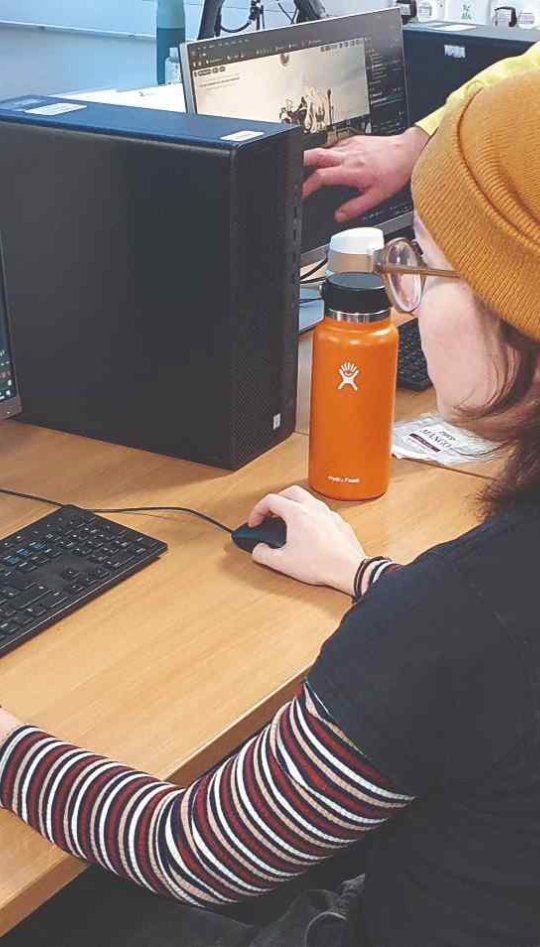
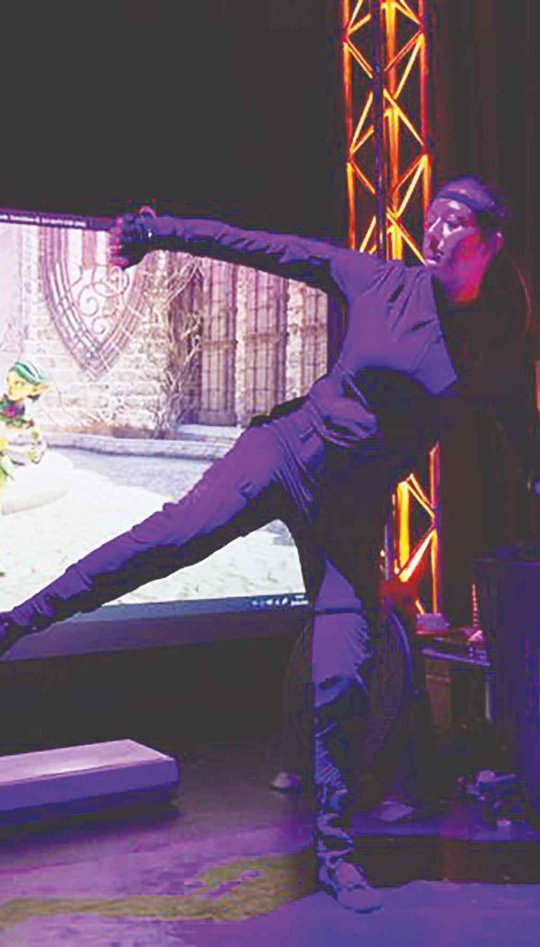
Game Animation BA(Hons)
Specialise as an animator working on games.
Course overview
Specialise as a games animator, one of the games industry’s most sought-after roles. If you have the passion, we’ll teach you what you need to know – from mastering core animation principles in a game development context to rigging and animating characters in real time to implement into major game engines.
On this Game Animation course, you'll work in studio-style collaborative teams mirroring industry practice as you work through full implementation of the game animation pipeline. You’ll graduate with a rich portfolio of work, ready to launch your games career.
Why study this course at Falmouth?
- We’re ranked as the number one university for game design in England (Princeton Review, 2025) and have some of largest and best-equipped dedicated student game-making facilities in the country
- You’ll learn from professional game animators, developers and artists who have worked on titles like Hitman, League of Legends, World of Warcraft and Final Fantasy XII
- You’ll collaborate in multi-skilled teams to create real games from the outset, keeping the Intellectual Property (IP) of any games you produce
- Our graduates have worked in animator roles for Respawn on Apex Legends and at Creative Assembly, Frontier, nDreams and Ubisoft

Course details
You'll build up your core skills as an animator, learning game development processes and the roles of different specialisms within the games industry. You'll then work on team-led projects and collaborate with artists and programmers to create rich characters that are responsive to player controls. You'll rig and animate digital models to bring your ideas to life.
Course study options
You can gain your Game Animation BA(Hons) degree in three years or choose to add an Integrated Foundation Year and/or professional placement year. Discover the full course details for each study option, below.
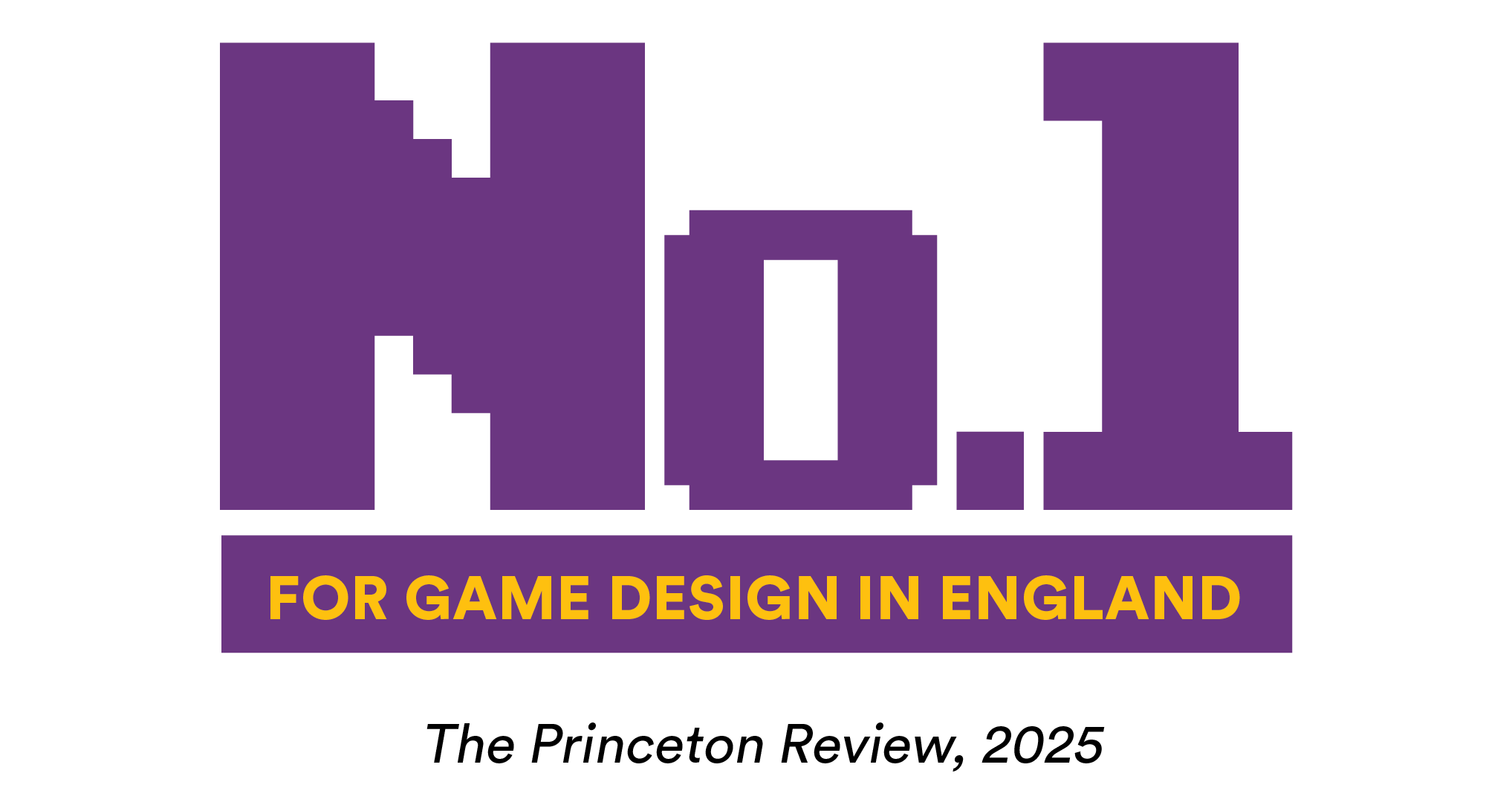
Course structure
You'll learn what it takes to make an animated game, including asset creation, project management and development pipelines, pitching ideas and considering theories about what games are and how they engage players. Developing your skills in animation, you'll enhance cross-disciplinary groups as you pitch a game and build it as part of a collaborative team.
Modules
Development Foundations
You’ll be introduced to the basic principles of game animation, including key roles, terminology and tools used in the development of digital products and services.
Working as part of a small team, you’ll practice various prototyping methods and pitch your idea for a future games project.
Digital Creativity
You’ll explore a range of digital media formats, including text, image and sound. You’ll experiment with manipulating digital artefacts and learn how to integrate them with digital game technologies, such as game engines, to make your work interactive.
Game Animation 1
Through regular animation exercises, you’ll deepen your knowledge of key animation principles, including learning about rigging and animation workflows. You’ll then produce a showreel of your work.
Reading Games
To help inform and broaden your own development practice, you’ll study and write about the nature of digital experiences, their markets and the context of their production.
Multidisciplinary Teamwork
Working in multi-skilled teams, you’ll produce a digital product or service in response to a brief. You’ll learn how to manage a software development project and apply your specialist skills in game animation within a development pipeline.
Game Animation 2
Building from the Game Animation 1 module, you will focus entirely on creating believable characters, developing a full motion set for a character that will be set up in a game engine ready for playing.
With greater confidence in your skills, you'll mirror professional game development as you tackle a larger game project in a multi-skilled group. Over the course of the year, you'll research and experiment with various approaches to game animation and create innovative features. You'll investigate strategies to enhance the player experience and learn what drives industry trends and developments from visiting professionals. Throughout the year you'll continue developing your specialist game animation practice.
Modules
Game Form and Player Experience
In this module, you’ll explore the relationship between game design and player experience. You’ll research theories of game play, and analyse the popularity of certain methodologies, including ludic experiences and narrative.
World Building: Pre-production
Working in a multi-skilled team, you’ll design a concept for a digital ‘world creation’ project. You’ll broaden your understanding of key game animation principles, including world-building and exploratory concept work, prototyping, pre-production, and the early phases of production.
Game Animation 3
You'll develop advanced rigging and animation skills, with an emphasis on facial rigging and motion capture. You’ll also create a short cinematic sequence to highlight a game character.
World Building: Production
You’ll continue to design and build your ‘world creation’ project while working in your multi-skilled teams. You’ll deliver content in line with production milestones and prepare to launch and market your product.
Portfolio Development
In this module, you’ll work on a self-devised portfolio piece with a view to submitting it to an industry competition.
From researching to execution, you’ll hone your skills and gain confidence as you develop your project within your chosen specialism. Experimenting with different techniques, you’ll build your portfolio and create a piece of work that conforms to industry norms.
You can choose to take an optional professional placement after your second year on a three-year programme, or after your third year if you’re studying for a degree with an Integrated Foundation Year.
You’ll be responsible for finding your own placement, with support from the Employability team.
Choosing this option will enhance your industry experience and skills while studying.
How you’ll study during your professional placement
You’ll spend time working in a professional context, as part of a business or organisation. This can be in one role, or up to three, and must be for a minimum of 24 weeks.
You’ll develop in-demand workplace skills, deepen your insight into industry and grow your network of contacts, all of which could help you get ahead in your career after graduation.
Throughout this year, you’ll develop a portfolio of work that includes critical self-reflection on what has been learned from the experience. You’ll be required to evidence your experiences, the skills you’ve learned and your professional growth.
During the final year of your Game Animation course, you'll produce a complete and potentially publishable game as part of a team. By pitching it to industry professionals, you'll receive reliable and insightful feedback. You'll also research a topic relevant to your project and build an online portfolio with a clear centrepiece, sharpening your real-world insights and building valuable career contacts.
Modules
Experience Design
Broadening your transferable skills, you’ll create a product or service centred around experience design. This could include an animated short film, interactive novel, animation for an app, motion capture sequence or animated assets for a specific media experience.
Future Skills
Focusing on employability, you’ll develop a commercial awareness and entrepreneurial mindset. You’ll explore career options, including researching the skills required to set up your own business, establish yourself as a freelancer, or for use as an employee in a business or organisation.
Professional Portfolio
You’ll broaden your knowledge of employment and enterprise opportunities within the industry, and receive mentoring on how to apply for work, including CV and portfolio advice.
Future of Games
You'll explore the current climate of contemporary games and digital culture, while examining cultural and technological changes that are likely to influence the future of the games industry. In doing this, you’ll confront a range of issues relating to ethical production and sustainability, equality and civil rights, and personal identity and ideology.
Major Collaboration
Leveraging the skills learnt across the three years, you'll deliver a substantial collaborative project. Working in multi-skilled teams, you’ll design and build a digital product or service, such as a mobile app, installation, game, web application, robot, immersive experience or software development tool.
Why study an Integrated Foundation Year route?
If you’re taking on a new subject that you haven’t studied in depth before, have been out of education for a while or have a non-standard educational background then an Integrated Foundation Year degree may be the right choice for you. It is a four-year degree with an Integrated Foundation Year to start, which allows you to explore the primary elements of your subject before progressing on to the remaining three years of the BA(Hons) degree.
What you'll learn
If you choose this pathway, you'll study five core modules in your Foundation year. These are all designed to help you explore the foundational elements of your subject. You'll gain relevant technical skills, learn to experiment and take risks, develop an understanding of professional practice, have opportunities to work across disciplines and collaborate with other students on live project briefs.
Modules
Explore
You'll begin your foundation year by working collaboratively with others to explore themes of the future. You'll take risks, experiment through play and be supported to break through barriers.
Technique
You'll take subject-specific workshops and develop essential technical and practical skills in your area of study. You'll also enhance your analytical and organisational abilities.
Apply
You'll work with your peer group to think beyond discipline by addressing a societal or global issue. You'll then showcase your work to your peers and deliver and accompanying evaluation of your process.
Industry
You'll enhance your creative and practical skills in your subject specialism by responding to typical industry briefs, underpinned by focused research and experiments. You'll also gain industry insights through guest lectures and workshops.
Launch
You'll develop your unique identity in your specialism through the production of a self-initiated body of work. Your final project will be the bridge to your next year, fully supported by evaluative reviews and critical analysis of the work you have created.
After the Foundation year, you progress into Year One of the full three-year degree, equipped with a deeper knowledge of your subject, a clear understanding of your strengths, and develop a practical and technical skillset and the confidence to excel in your chosen subject.
If you apply for and enrol onto a degree with an Integrated Foundation Year, you’ll have the option to switch onto a five-year version including a placement year. That means you’ll complete the first three years of your course before completing a placement in industry in your fourth year and returning to Falmouth for the fifth year of your programme.
As part of our process of continuous improvement, we routinely review course content to ensure that all our students benefit from a high-quality and rewarding academic experience. As such, there may be some changes made to your course which are not immediately reflected in the content displayed on our website. During your course, module content may be updated or optional modules withdrawn in order to maintain the best academic experience. Any students affected will be informed of any changes directly.
Stories from our community
Explore student projects, graduate successes, staff news and industry insights

Game Development graduate on making retro games and his YouTube following
29 January 2026
From building minigames in LittleBigPlanet as a teenager to releasing homebrew (unofficial hobbyist)...
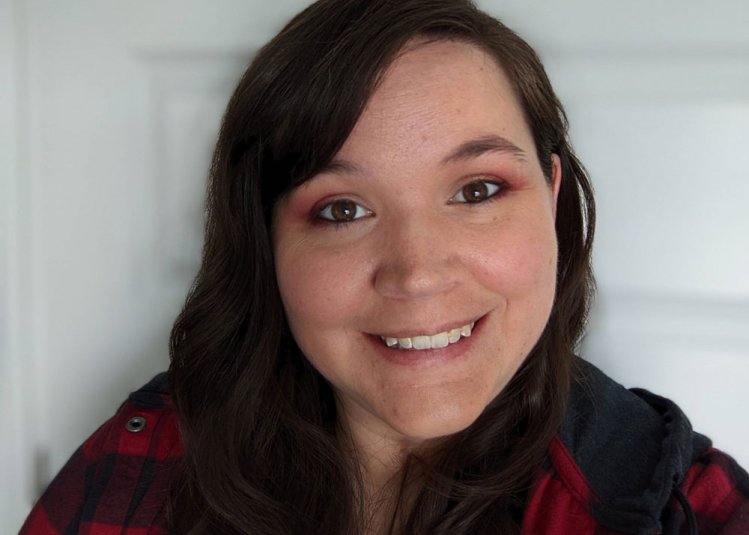
Why I returned to study an Indie Game Development master’s while teaching
27 January 2026
After years working across games and education, Jess Bradshaw chose to return to study with a clear ...
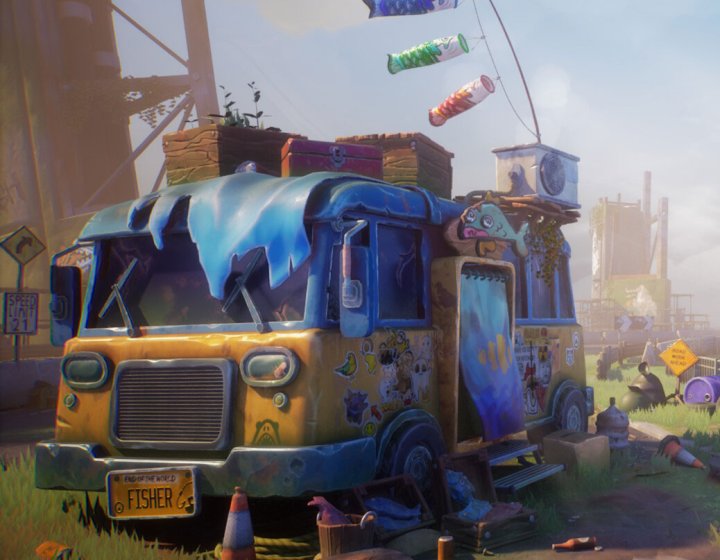
Game Art graduate reaches finals in international team challenges
20 January 2026
BA(Hons) Game Art and MA Game Art graduate Eden Gates has reached the finals of two team-based game ...
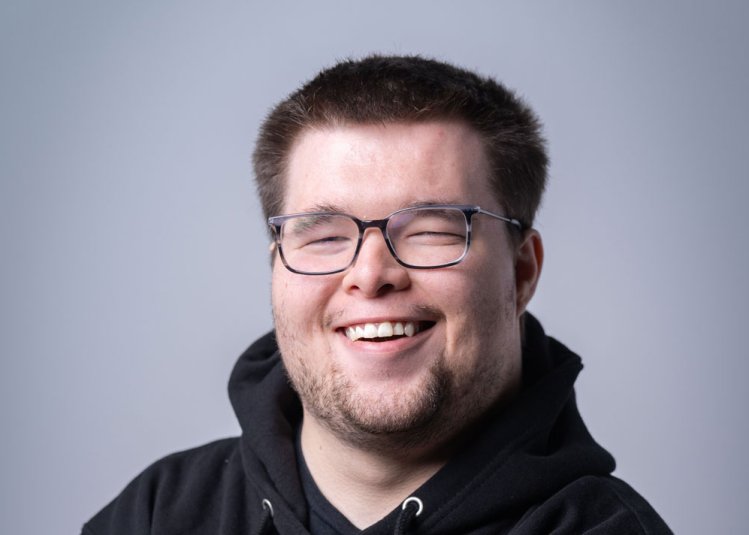
Game Development Writing graduate builds career in community management
25 November 2025
For Liam Gregory, studying Game Development: Writing BA(Hons) at Falmouth opened the door to far mor...
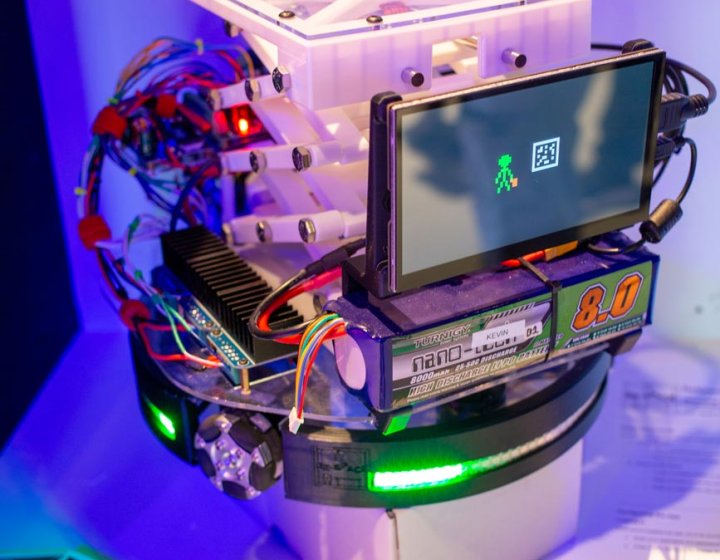
What is Creative Computing?
24 November 2025
Senior Lecturer in Computing, Matt Watkins explores what creative computing is and how it’s transf...

Falmouth University awarded £1.4m to power the future of creative design and manufacturing
18 November 2025
New state of the art design and advanced manufacturing facilities for students at Falmouth Universit...
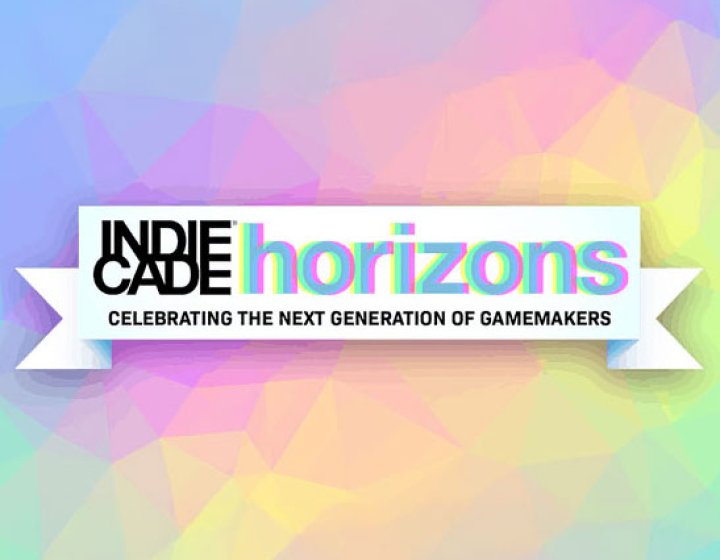
Dr William Huber honoured with Horizons Faculty of Excellence Award
11 November 2025
Falmouth University’s Associate Professor of Game Studies, Dr William Huber, has received internat...
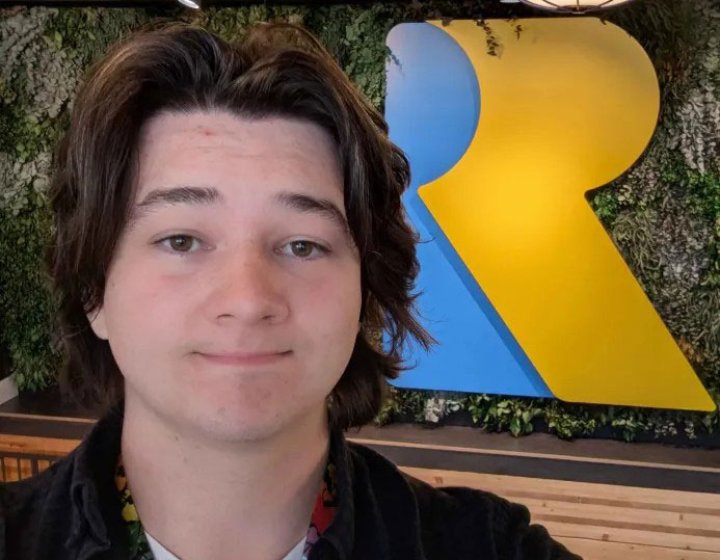
Game Animation student on joining renowned games studio
06 November 2025
Since graduating from Game Animation BA(Hons) at Falmouth, Brendon Chadwick has landed a dream start...
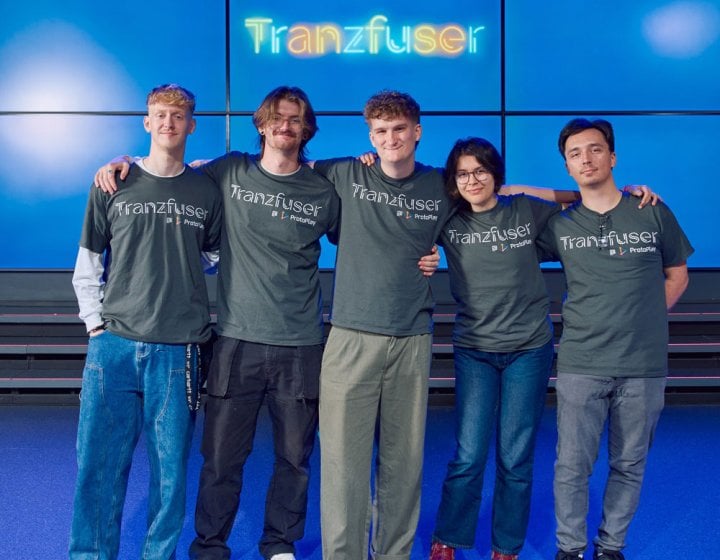
Games Academy graduates win national Tranzfuser competition
04 November 2025
Studio Whalefall, a team of Falmouth Games Academy graduates, is celebrating success after winning T...
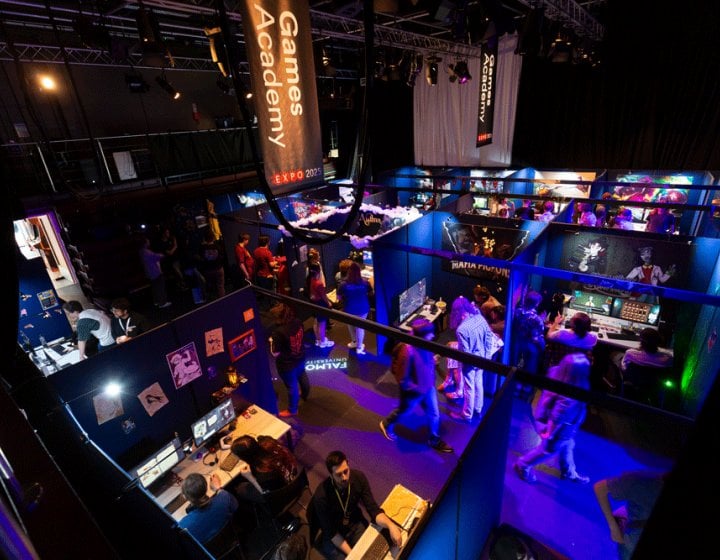
A catalyst for creativity and innovation: a decade of Falmouth University's Games Academy
21 October 2025
When Falmouth University launched its Games Academy in 2015, it did so with a bold premise: that gam...
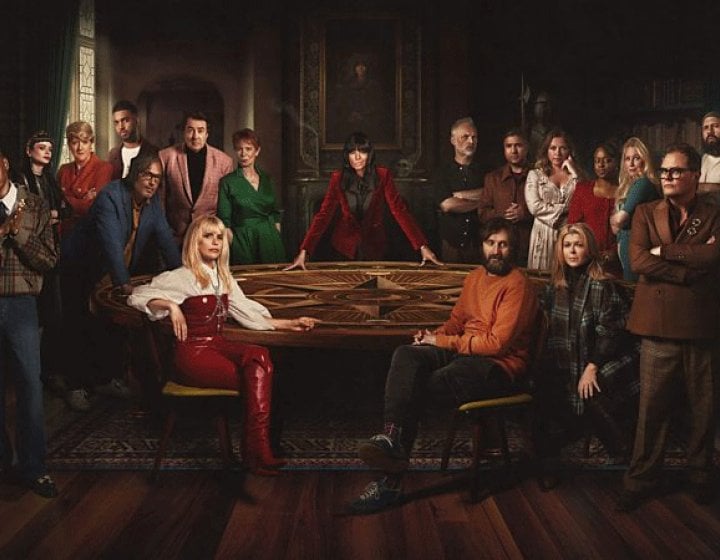
Playing the Game: What Celebrity Traitors reveals about strategy, authenticity and the self
16 October 2025
When The Traitors first appeared on television, few could have imagined that a game once played in t...
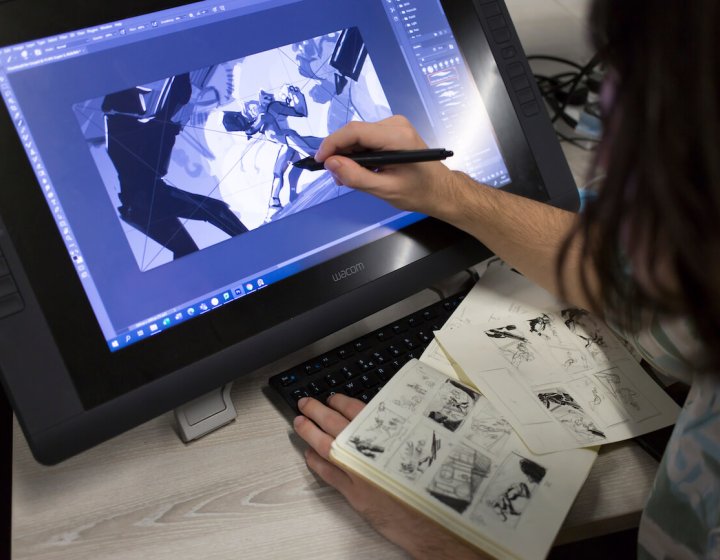
The difference between studying Game Art and Game Development: Art
15 October 2025
With two Game Art undergraduate degrees within the Games Academy, you might need a hand picking betw...
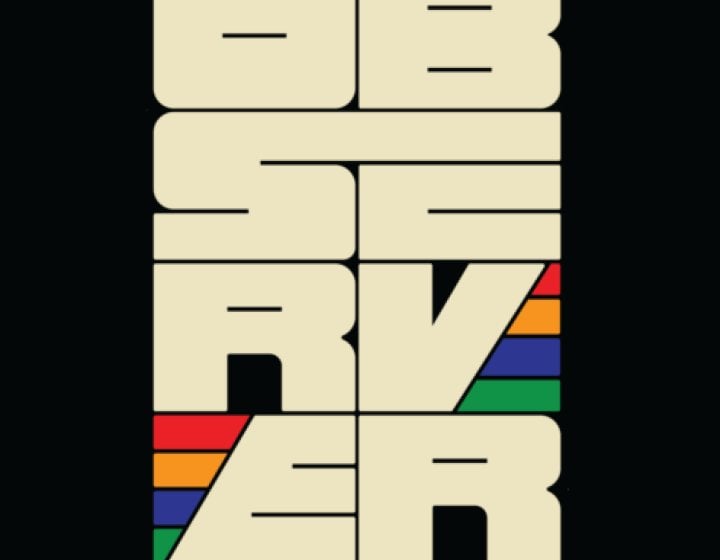
Lecturer’s game studio wins national award for championing games education
07 October 2025
Observer Interactive, the independent studio co-founded by Matty McGrory, Senior Lecturer in Indie G...

How a passion for cars led to a career in games and teaching Game Art
03 October 2025
Lee Walton’s route into games was anything but typical, moving from car design into roles at leadi...
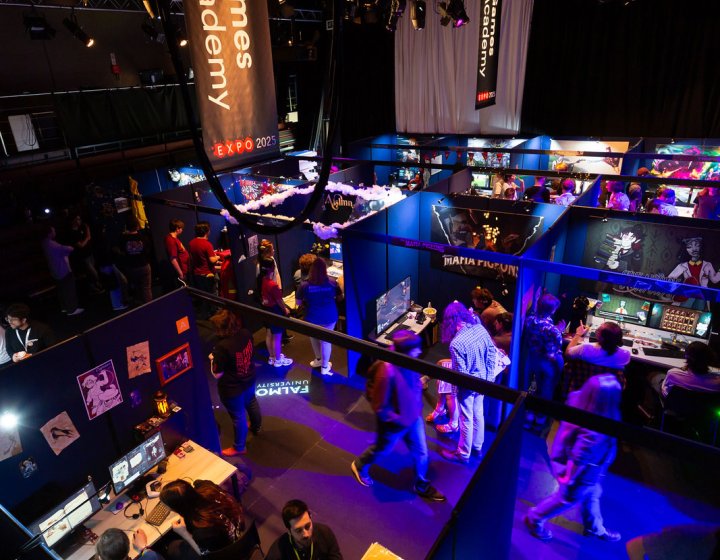
Forging Futures: How Falmouth University’s Games Academy became a catalyst for creativity and innovation
02 October 2025
When Falmouth University launched its Games Academy in 2015, it did so with a bold premise: that gam...
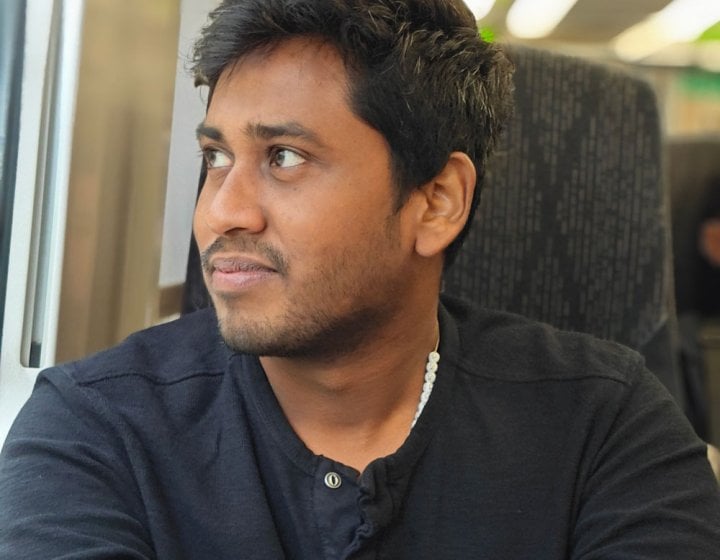
An international student’s journey on Falmouth’s MA Game Art
25 September 2025
For Anosh Saji, choosing to study a master’s in Game Art at Falmouth was about more than gaining s...
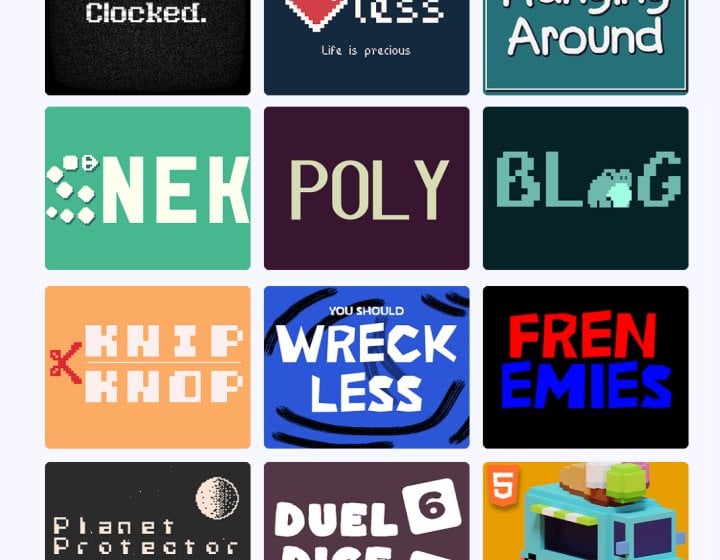
Indie Games Online student completes 12 games in 12 weeks project
23 September 2025
For his final major project on the Indie Game Development MA (Online), Mathijs Koning set himself a ...
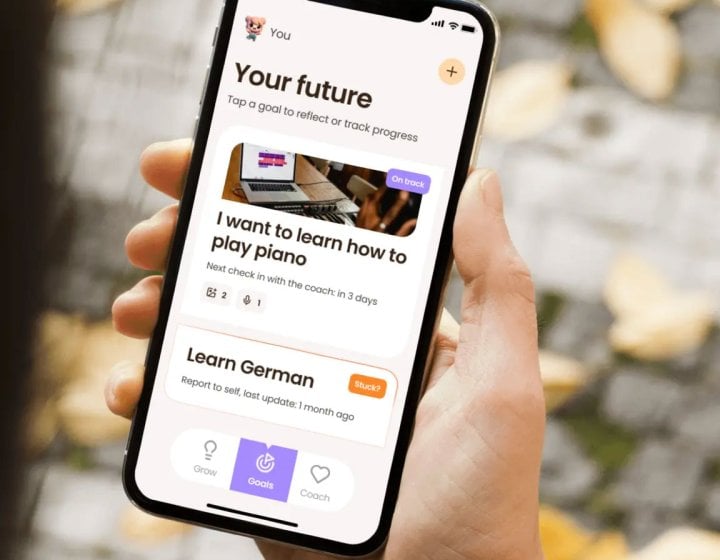
User Experience graduate on exploring scent, further study and starting a business
18 September 2025
When we think about digital design, we tend to think of screens, buttons and code. For User Experien...
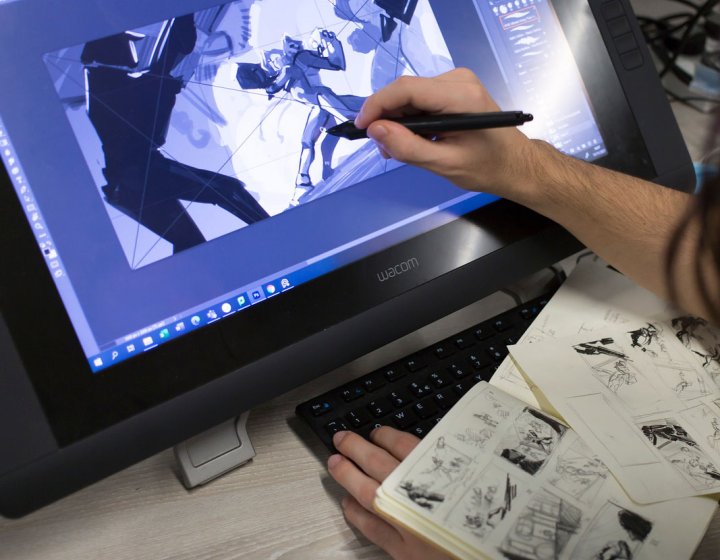
Game Art lecturer on character creation and collaboration
16 September 2025
We chatted with senior lecturer in Game Art, Michael Boylan, on how games are almost never made in i...
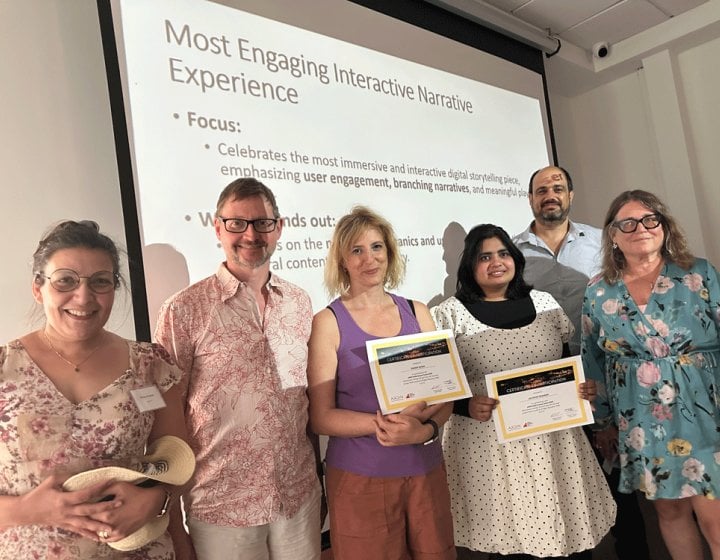
Meet the Game Programming lecturer at the cutting edge of interactive design
16 September 2025
Anjuman Shaheen, Lecturer in Game Programming MSc, has completed an intensive summer school in Malta...
How you'll learn & be assessed
You'll create original animated games through group work, professional practice and Game Jams. You'll also develop practical skills through practice-based workshops and learn to evaluate and improve your work through group tutorials, crits, and individual tutorials.
You'll share specialist first-year modules with other Games Academy courses. As the Game Animation course progresses, you'll move from fundamental animation skills to rich, character-driven animation and shift your focus to project teamwork.
At Falmouth, we use a 'digitally enhanced learning & teaching' approach. Your experience will always be predominantly in-person, including seminars, tutorials and studio teaching, with some, more targeted elements, being online either live (synchronous) or pre-recorded (asynchronous). You can read more here.
100% of your assessment will be coursework.
Assessment methods
- Teamwork features heavily to reflect the industry
- Game making is the primary form of assessment
- Continuous assessment with no formal examinations
- Visual, verbal and written assignments
- Portfolio of project work
Foundation year assessments are 100% coursework based.
This course could be for you if...
- You're passionate about games and want to learn to create them
- You're aiming to become a game animator in either the AAA or indie area of the industry
- You're looking for a course which mirrors industry with multidisciplinary teams in a studio setting
- You love keeping up-to-date with the latest games and platforms
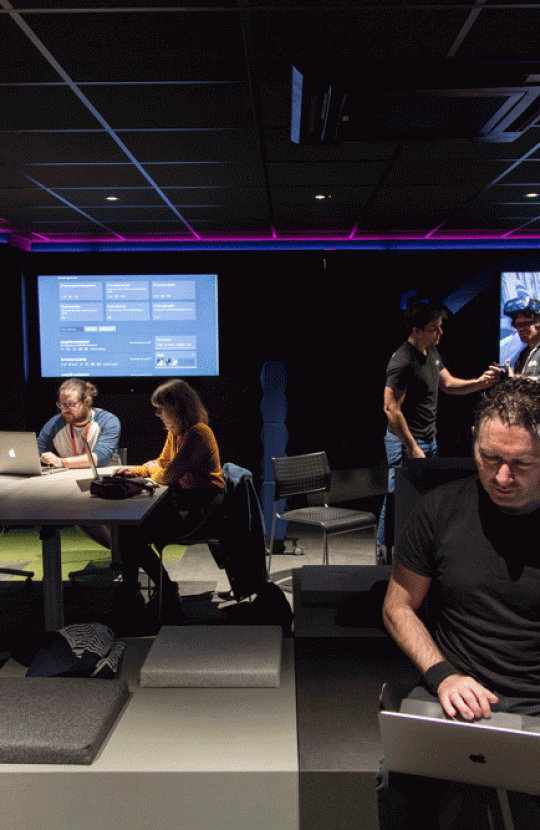
Virtual tour
Discover where you’ll spend your time as a student with our 360° tour, showcasing our facilities, accommodation, town and scenery.
Facilities
- Large studio equipped with regularly updated, state-of-the-art game development machines, crash mats and soft animation props
- Rokoko Smartsuit Pro 2 motion capture suits, including Smartgloves and Face Capture
- Life drawing studio for artists and weekly life drawing sessions
- Specialised computing hardware for game development, deep learning projects, motion capture and immersive experiences
- Standard packages used in software development for the games and visual effects industries, including Adobe and Autodesk suites
- Attached lab committed to staying at the cutting edge - featuring augmented reality, virtual reality AR/VR/MR (XR) equipment including HoloLens, HoloLens 2 and Meta Quest 3 & 2
- Attached lab with access to PS5 development and testing kits
- Access to a variety of game engines including Unity and Unreal
- Access to voice over and video recording facilities
- Studios open late during term time
- Access to free software
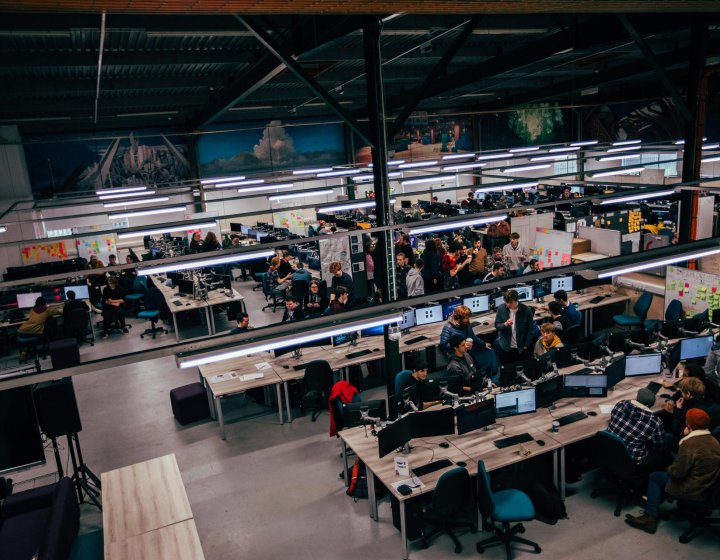
Games Academy Facilities
Our Games Academy offers professional-standard studios, a dedicated craft room, breakout spaces, and...
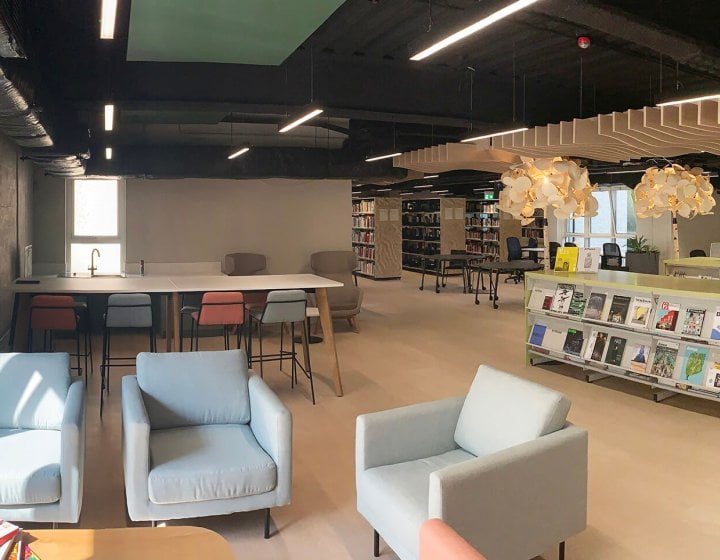
Library Facilities
Offering extensive collections, our two libraries provide a wealth of digital resources, magazines, ...

Sports Centre
Our Sports Centre, on Penryn Campus, includes a spacious gym with up to 90 of the latest, new statio...
Staff
You'll be taught by professional game animators, developers and artists coming from companies like Square-Enix, Octopus 8 Studios and Disney as well as indie studios. Together, they have worked on titles like Hitman, League of Legends, World of Warcraft and Final Fantasy XII.
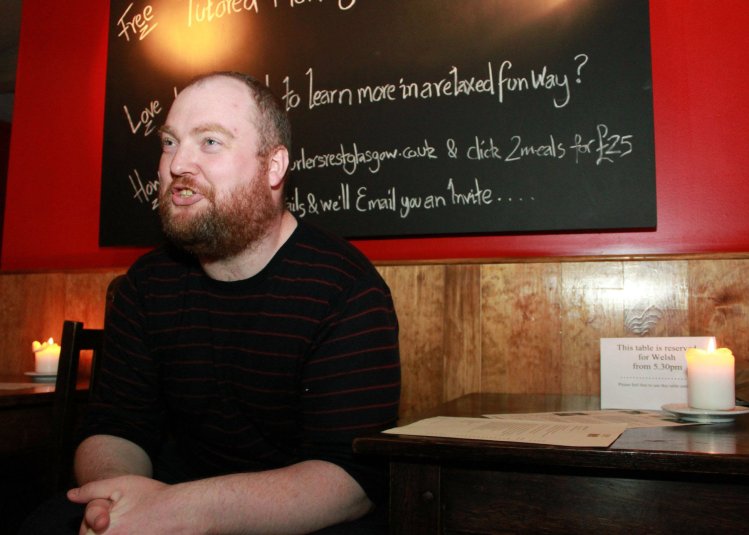
Brian McDonald
Head of Games & Head of Games Incubation
Brian McDonald is Head of Games and the Games Incubator Programme at Falmouth University. Brian h...
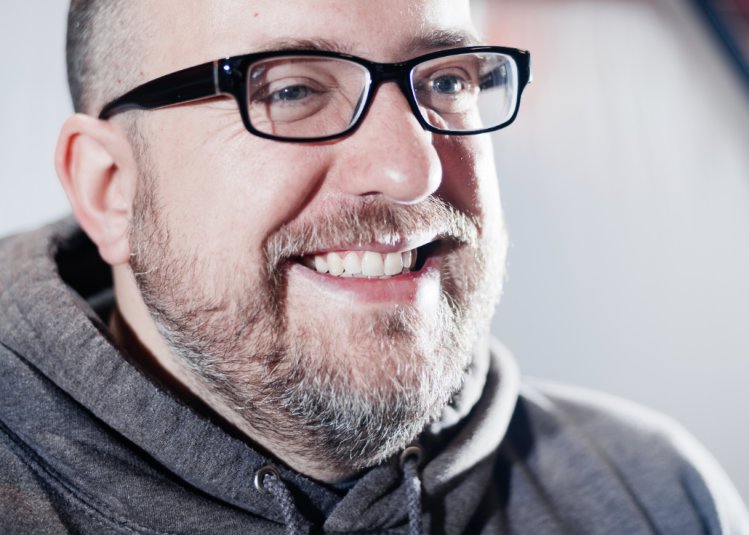
Dr Douglas Brown
Dean of the Faculty of Screen, Technology & Performance
Formerly employed by international games developer and publisher Square-Enix and credited on several...
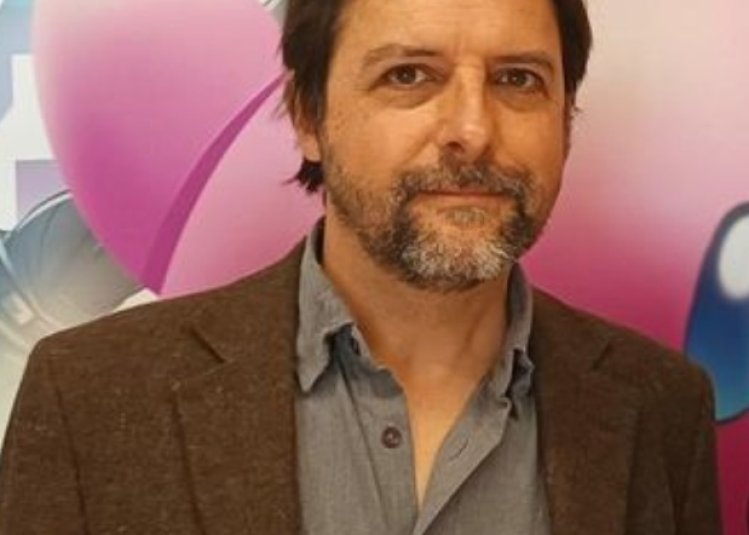
Dr William H Huber
Associate Professor of Game Studies
Dr William Huber studies videogames, new media and digital/ludic culture. Currently Associate Profes...
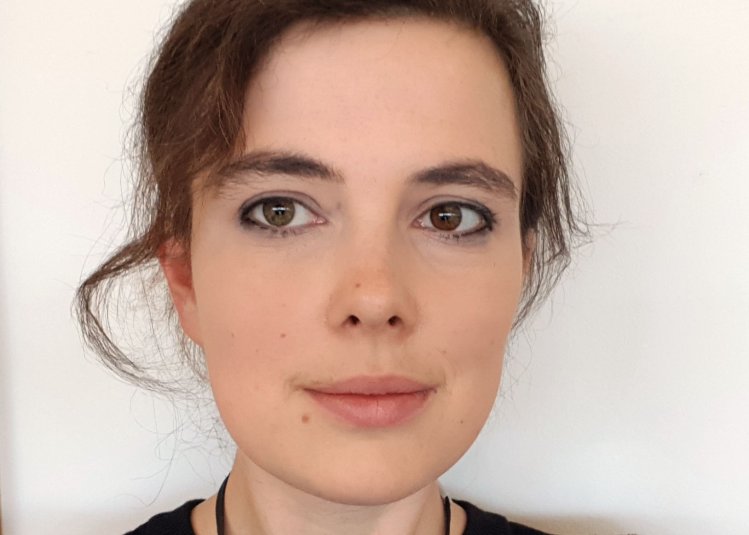
Phoebe Herring
Senior Lecturer
Phoebe Herring joined Falmouth University as a lecturer in BA(Hons) Game Art after freelancing on a ...
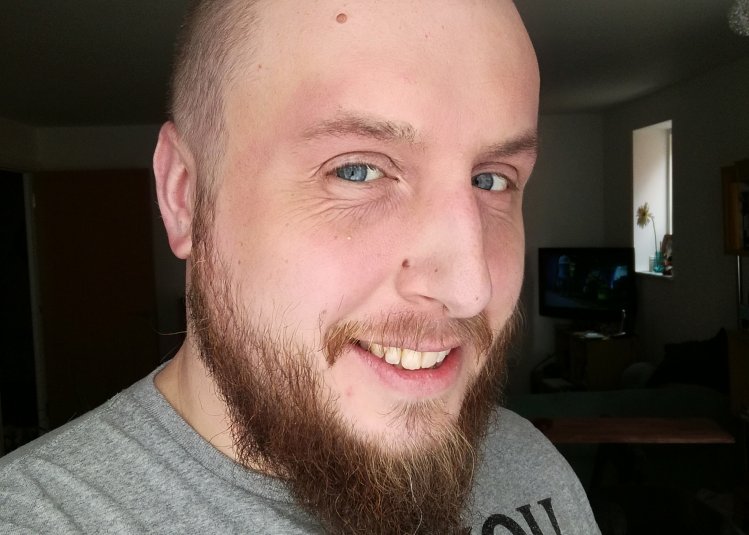
Dr Che Wilbraham
Lecturer: Games
As a self-taught, independent game developer, Ché’s background is in the arts. He sees himself ...
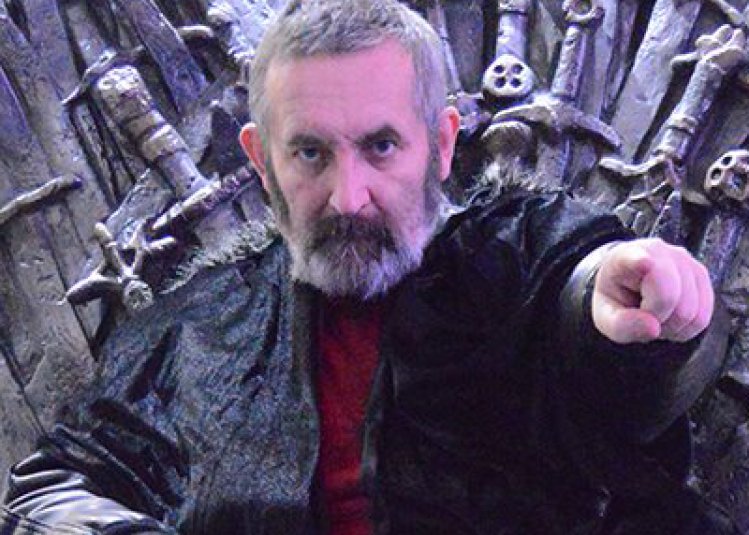
Terry Greer
Senior Lecturer in Game Design
After starting out life as a zoo keeper at London Zoo, Terry has worked for over thirty years in the...

Dr Jeff Howard
Associate Professor of Games and Occulture
Dr Jeff Howard is a scholar of occulture and esotericism. He works as Associate Professor of Games a...
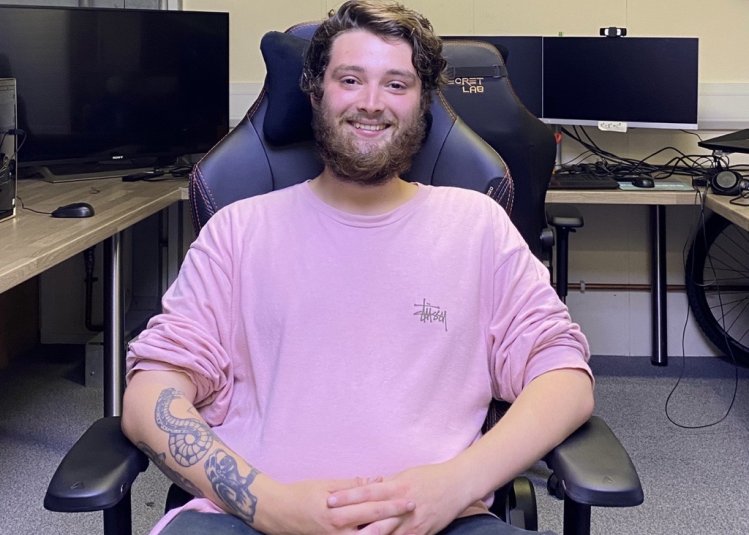
Matt Irwin
Senior Games Technician
I am a Senior Technician at the Games Academy, with a keen focus on motion capture and technical ani...
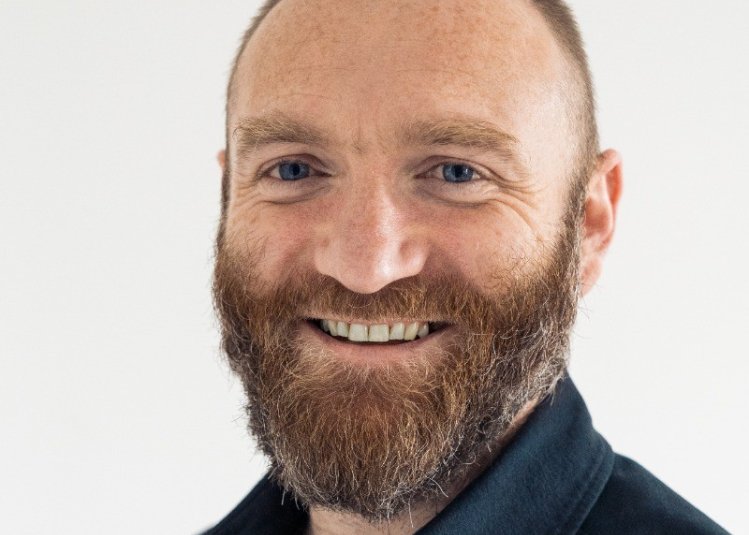
Richard Milligan
Senior Lecturer: Game Animation
Richard is an Animator, Developer and Lecturer who joined Falmouth University in 2016. After spendin...
Some members of staff only teach on specific modules, and your course might not feature every staff member who teaches on the course.
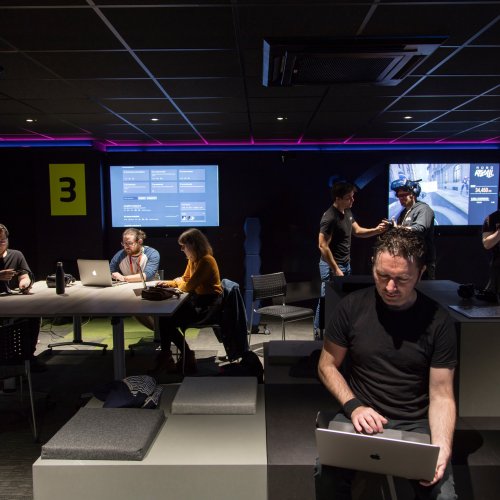
Got a question about this course?
If you want to know more about the course structure, our application requirements or what our graduates have gone on to achieve, our friendly course team is here to help.
Chat to Richard
Careers
As a Game Animation graduate, you could become a:
- Cinematic Artist
- Animator
- Junior Animator for VR
- Games Animator
- Creature Animator
- Gameplay Animator
- Character Animator
- Trainee motion capture technician
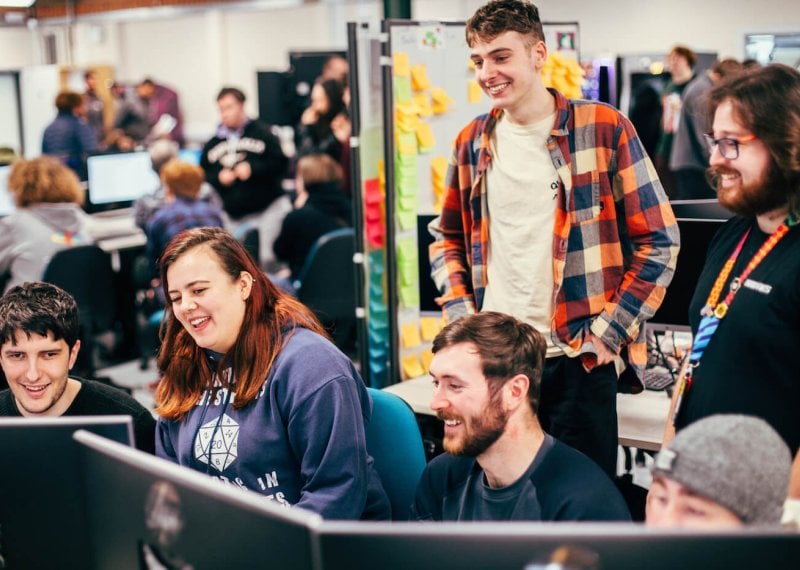
Gaming is the fastest-growing form of entertainment, with over 2.5 billion video gamers globally.
How to apply
Ready to apply for 2026?
You can apply for our undergraduate degrees via UCAS. You'll need our university UCAS code (F33) as well as your course code (which you'll find on your course page) for your application.
Applying as an international student?
There are a number of different ways to apply to study at Falmouth as an international student. Find out how you can become part of our creative community.
| Course route | UCAS code |
|---|---|
| Game Animation BA(Hons) three year degree | I609 |
| Game Animation BA(Hons) with Integrated Foundation Year | FY38 |
| Game Animation BA(Hons) with professional placement | PY28 |

Application advice & interview information
Go to ToolkitFor starting your studies in 2026
UK applications: 14 January 2026 (for equal consideration)
Applications after the 14 January will be considered on a first-come, first-served as long as there are places available. Apply for this course now.
For starting your studies in 2027
UK applications: 13 January 2027 (for equal consideration)
International fee payers
International fee payers can apply throughout the year. But we recommend applying as early as possible, to make time for visa and travel arrangements.
We consider all applications on their own individual merit and potential.
Our diverse community is creative, innovative and entrepreneurial. We recognise that these qualities aren’t always shown in academic grades alone. That’s why, while many of our applicants achieve high academic grades, we also welcome those who can demonstrate their potential through an exceptional portfolio or performance.
We welcome applications from all subject backgrounds, whether you’ve specialised in STEM, the arts or humanities. Find out more about our Entry Requirements here.
Course routes & entry requirements
BA/BSc(Hons) three year degree: minimum 64 UCAS Tariff points
BA/BSc(Hons) four year degree with professional placement: minimum 64 UCAS Tariff points
BA/BSc(Hons) four year degree with Integrated Foundation Year: minimum 32 UCAS Tariff points
At Falmouth, we'll consider the equivalency of your specific qualifications against our entry requirements and support you through your application journey.
View our International Entry Requirements
Language requirements
For applicants whose first language is English we require you to have or be working towards GCSE English Language Grade 4 (C), or equivalent.
If English is not your first language you will need to meet the same standard which is equivalent to the IELTS Academic 6.0 overall score, with at least 5.5 in Reading, Writing, Speaking and Listening. We accept a range of in country equivalencies and approved tests.
If you need a student visa to study in the UK, you may need to take a recognised language test. You can read our English Language Requirements for more information.
Fees, costs & funding
Tuition fees
| Annual tuition fee | Student |
|---|---|
| £9,790 per year | Full-time UK |
| £19,950 per year | Full-time EU/international |
| £1,955 per professional placement year | Full-time UK and EU/international |
| £9,790 per Integrated Foundation Year | Full-time UK |
| £19,950 per Integrated Foundation Year | Full-time EU/international |
| Annual tuition fee | Student |
|---|---|
| £9,535 per year | Full-time UK |
| £17,950 per year | Full-time EU/international |
| £1,905 per professional placement year | Full-time UK and EU/international |
| £9,535 per Integrated Foundation Year | Full-time UK |
| £17,950 per Integrated Foundation Year | Full-time EU/international |
Tuition fees for September 2027 will be confirmed in summer 2026.
Tuition fees are set annually and are subject to review each year. The University may therefore raise tuition fees in the second or subsequent years of a course, in line with inflation and/or the maximum permitted by law or Government policy. Students will be notified of any changes as soon as possible.
The figures above don't include accommodation and living costs
Typical course costs
- £1500 - Laptop or desktop capable of running 3D modelling software
- £150 - Recommended reading
- £30-£150 - Headset with microphone
- £25-£100 - Webcam
If you need to bring equipment or materials with you, these will be outlined in your Welcome Letter
Essential
The latest advice about which computers we recommend you buy for your course is available here.
Webcam
You will need a webcam in some teaching. Manufacturers such as Logitech, Microsoft, and Razer are rated highly by our current students. These can cost between £25 - £100.
Internet Access
It is important that you secure sufficient access to the Internet as some materials are made available to you through our virtual learning environment. We recommend a fibre broadband connection if available, but a minimum of at least 5Mbps will be suitable for livestreaming content.
Additional typical course costs for Integrated Foundation Year pathway
- £250 for materials
- A laptop/desktop computer
- Adobe Creative Suite
To engage in the digital learning activity, although you will be able to access IT suites on campus, you will benefit from a laptop to access the platforms and tools we use. Depending on your subject, you may need a specific type of computer. If you're unsure about what you might need, please contact our course advisors.
£250 - Recurring annual costs may include: art/creative materials and costs towards your end of year show exhibition and can vary depending on material choices and specialism.
Study trips: There are several field trips and you will need to allow for some costs for student contributions towards coach hire and exhibition entry. Total annual cost approximately £60.
If you want to attend the planned week-long residential trip to London in the Spring of 2026 then you will need to plan for a £100 deposit payment shortly after arriving on the course, to secure a place, and to budget for a total trip cost of approx. £400 - to be paid in instalments.
Funding
For information about funding available, please visit our student funding pages.
Ask a student
What better way to find out about life at Falmouth University than by asking our current students?
From course details and academic support, to the social scene and settling in, our students are ready and available to answer any questions you might have. Simply set up your account, send them a question and they'll get back to you within 24 hours.
Similar courses
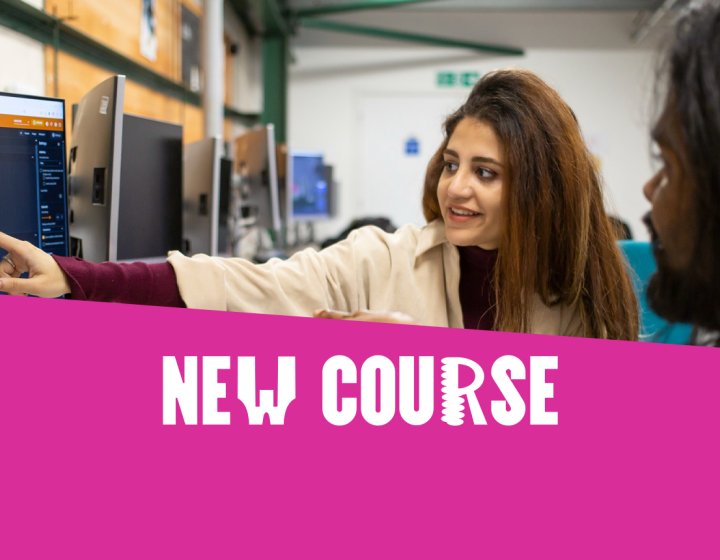
Artificial Intelligence BSc(Hons)
Artificial intelligence is transforming every corner of our world: from cars that drive themselves t...
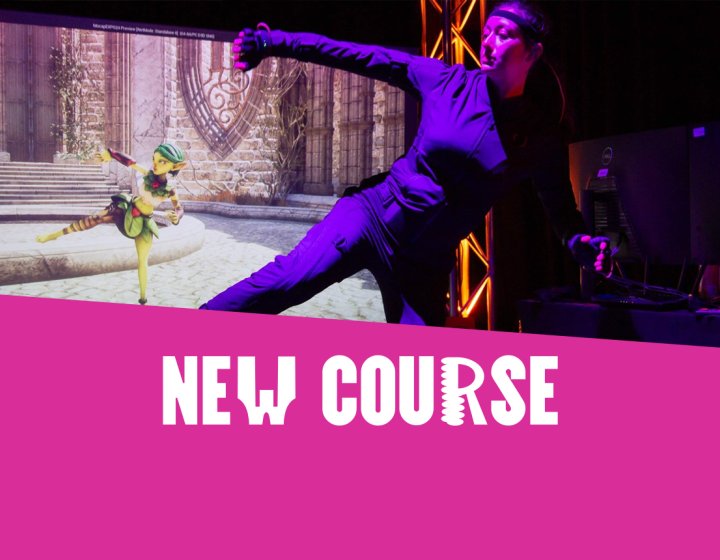
Creative Computing BSc(Hons)/BA(Hons)
Work across creative disciplines to explore creative coding, interactive systems, digital storytelli...
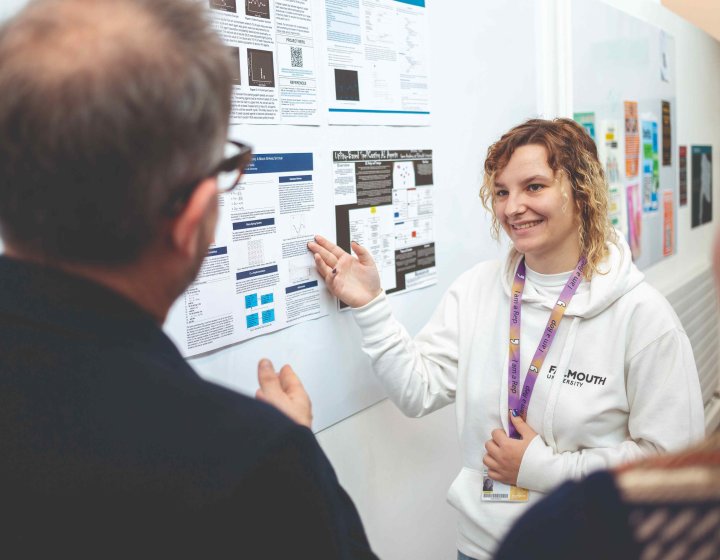
Computer Science BSc(Hons)
New immersive realities, data-rich interactions, automations and ever-more ubiquitous systems are sh...
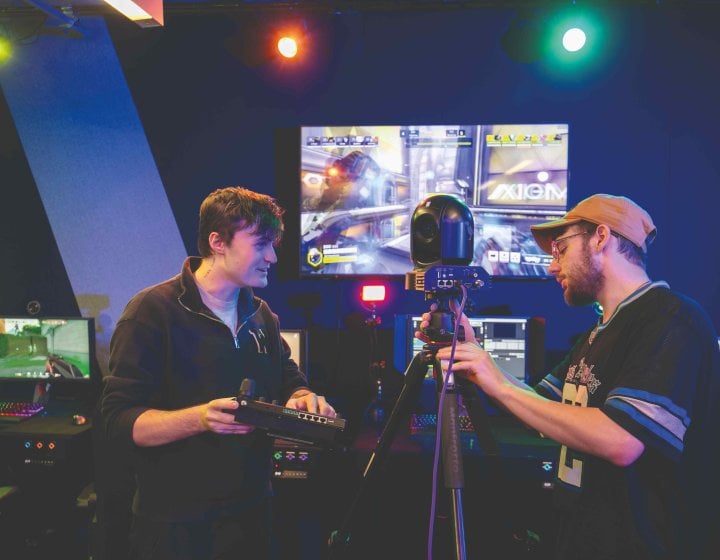
Esports & Livestreaming BA(Hons)
Immerse yourself in Esports culture on this degree, which offers a unique opportunity to be at the f...
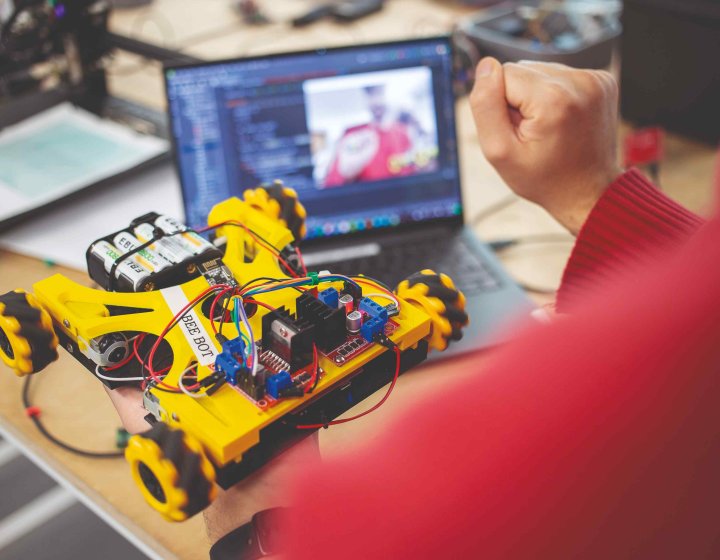
Robotics BSc(Hons)
Explore the world of artificial intelligence and create interactive robots that respond to the chall...
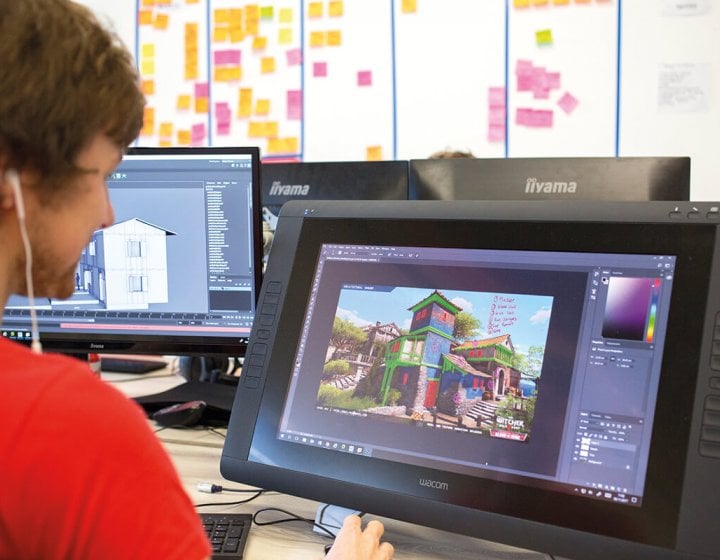
Game Development BA(Hons)
Join a community of people who have a passion for games. From day one, you’ll work as you would wi...
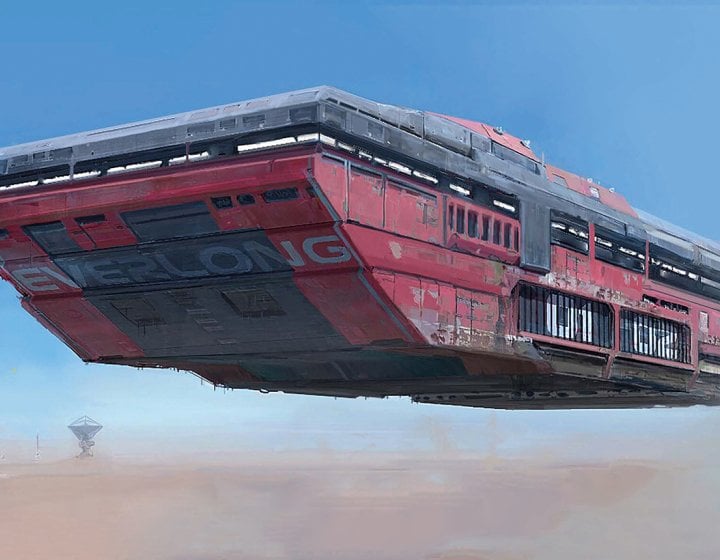
Game Art BA(Hons)
Work in multi-skilled collaborative teams and graduate as a confident, industry-ready game artist. ...
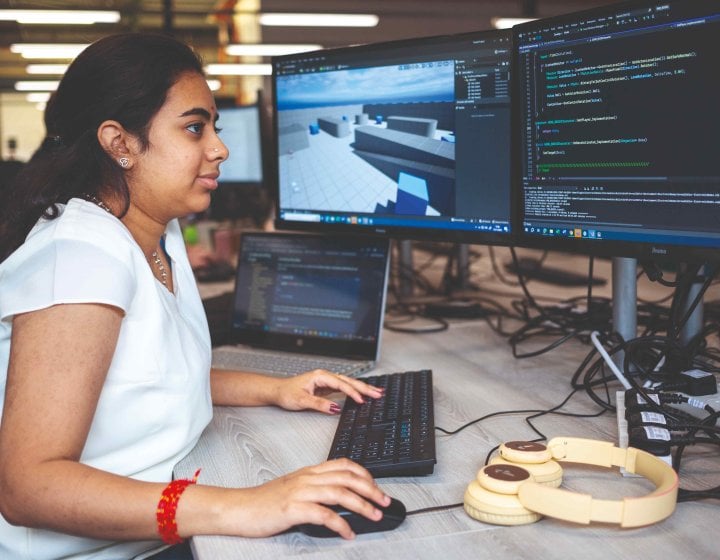
Computing for Games BSc(Hons)
Learn how to shape the games of the future by studying game development through the lens of computer...
Open Days and events
From visiting campus to online application advice, get all the information you need about joining our creative community.
Find an event
